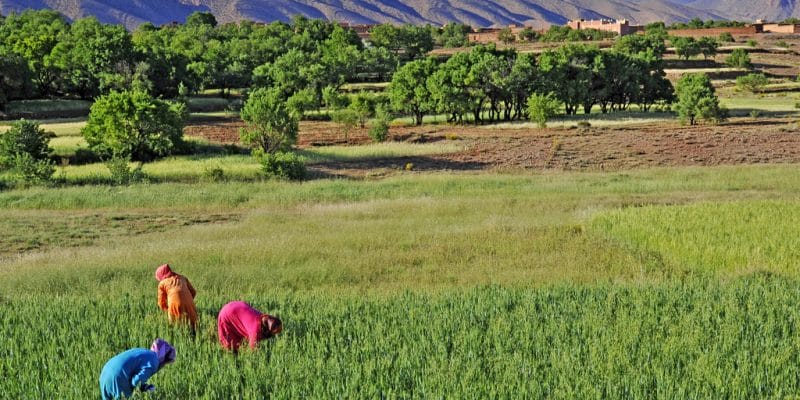The African Development Bank (AfDB) announced that the Green Climate Fund (GCF) has approved three financing proposals for climate resilience projects. With a total amount of $110 million, the loans and grants will have an impact on several countries in Africa.
Africa is one of the continents most affected by climate change in the world. It can be observed in particular through desertification, of which the extension of the Sahara is the most significant development. In less than 100 years, the desert found in North Africa has increased by 10% of its surface area. An alarming signal among many others, which prompted the African Development Bank (AfDB) to launch the Integrated Programme for Development and Adaptation to Climate Change in the Niger Basin (dubbed Pidacc/BN in French).
In this context, the Green Climate Fund (GCF) recently validated the financing of up to US$ 110 million for three climate resilience projects submitted by the AfDB. The Pidacc/BN share will amount to $67.8 million. More specifically, it is a grant of $57.8 million and a concessional loan of $10 million.
An ecosystem conservation project
Pidacc/BN is also supported by several other development partners. These are the AfDB, the European Union, the Global Environment Facility, the Forest Investment Programme, the Climate Investment Funds and the beneficiary countries. Together, they raised $147 million, bringing the total funds raised for Pidacc/BN to $214.8 million.
The programme will cover nine countries: Niger, Nigeria, Burkina Faso, Benin, Chad, Cote d’Ivoire, Benin, Mali, Guinea and Cameroon. “The multinational approach to climate change adaptation adopted by the Pidacc offers an opportunity for the AfDB to promote low-emission, climate-resilient agriculture in the nine countries of the Niger Basin,” said Martin Fregene, Director of the AfDB’s Agriculture and Agro-Industry Department.
It will also help to preserve the ecosystem and biodiversity of the countries concerned, particularly to cope with the silting up of the Niger River. The other objective of the Pidacc/BN will be to enable the population to adapt to climate change through several microprojects. According to the AfDB, the programme will directly benefit 4 million people and indirectly benefit 10 million others.
Electricity from renewable sources
The GCF grant will also benefit a renewable energy project in the Democratic Republic of Congo (DRC). The $20 million loan and $1 million grant will be used to build three solar photovoltaic power plants. They will be located in Karawa, Equateur province in the north, Kolwezi in the south, and Mbuji-Mayi in the centre. They will be equipped with batteries for energy storage. The AfDB has announced that it will also finance the programme, which will cost USD 42 million. It should benefit 150,000 people.
In Burkina Faso, a total of 335,000 people will benefit from a program funded by the GCF, which will provide $28.3 million for Yeleen’s rural electrification program, an initiative based on off grid with batteries. The small grids will produce at least 15 GWh per year, employing more than 200 people. The program will require an overall funding of $60 million. The remaining amount will be injected through a loan from the AfDB and the European Union; private solar companies should also invest in the projects. The programme is planned to run for 25 years.
Jean Marie Takouleu







